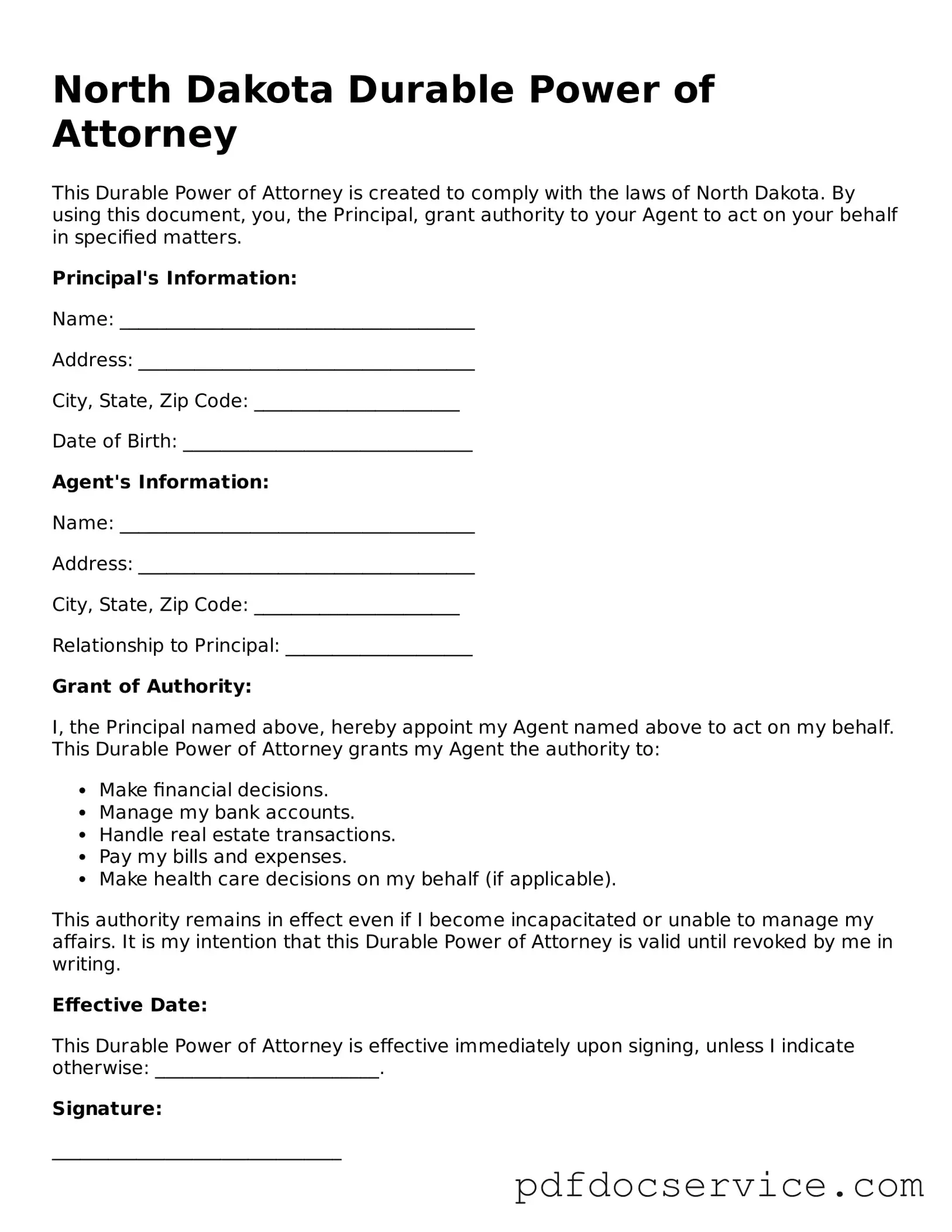What is a Durable Power of Attorney in North Dakota?
A Durable Power of Attorney (DPOA) in North Dakota is a legal document that allows you to appoint someone to make decisions on your behalf if you become unable to do so. This authority can cover financial matters, healthcare decisions, or both, depending on how the document is drafted. The term "durable" means that the power remains effective even if you become incapacitated.
Who can be appointed as an agent in a Durable Power of Attorney?
You can choose any competent adult as your agent, also known as an attorney-in-fact. This could be a family member, friend, or trusted advisor. It’s crucial to select someone you trust completely, as they will have significant control over your affairs.
What powers can I grant to my agent?
The powers you grant can be tailored to your needs. Common powers include:
-
Managing bank accounts
-
Paying bills
-
Buying or selling property
-
Making healthcare decisions
Be sure to specify any limitations or specific instructions to guide your agent in their decision-making.
How do I create a Durable Power of Attorney in North Dakota?
To create a DPOA, you must complete a form that complies with North Dakota law. You can find templates online or consult an attorney for assistance. After filling out the form, you must sign it in front of a notary public. This ensures that your document is legally binding.
Does a Durable Power of Attorney need to be notarized?
Yes, in North Dakota, your Durable Power of Attorney must be notarized to be valid. This step adds an extra layer of authenticity and helps prevent fraud. The notary will verify your identity and witness your signature.
Can I revoke my Durable Power of Attorney?
Absolutely. You have the right to revoke your Durable Power of Attorney at any time, as long as you are competent. To do this, you should create a revocation document and notify your agent and any institutions where the DPOA was presented. This ensures that everyone is aware of the change.
What happens if I become incapacitated and have a Durable Power of Attorney?
If you become incapacitated, your appointed agent can step in and make decisions on your behalf, as outlined in the DPOA. This can help ensure that your financial and healthcare needs are met without delay, allowing your wishes to be honored even when you cannot communicate them.
Is a Durable Power of Attorney the same as a Living Will?
No, a Durable Power of Attorney and a Living Will serve different purposes. A DPOA focuses on appointing someone to make decisions for you, while a Living Will outlines your preferences for medical treatment in the event that you cannot express them yourself. Both documents can work together to provide comprehensive planning for your future.
Do I need an attorney to create a Durable Power of Attorney?
While it is not legally required to have an attorney, consulting one can be beneficial. An attorney can help ensure that your DPOA complies with state laws and that your wishes are clearly articulated. This can prevent misunderstandings and disputes down the road.

